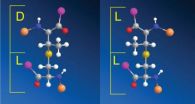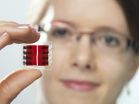(Press-News.org) Researchers at Royal Holloway university have found that Brazilians and Chileans want the state to buy on social and environmental criteria, not just on price.
Based on this pioneering research, researchers from Royal Holloway have been invited to be the first academics to join the UN Environmental Programme's global Sustainable Public Procurement Initiative and attend its meeting in Paris this week.
The Choices Project is a collaboration between Royal Holloway, the Universidade Federal do Rio de Janeiro and Universidad Diego Portales. The project team also involves the Ethical Consumer Research Association in the UK, Instituto Akatu in Brazil and Ciudadano Responsable in Chile. It uniquely looks to compare consumers' ethical opinions and behaviour with government procedures for purchasing collectively on behalf of citizens.
Main findings from the project include:
85% of Chileans say that the state should buy from companies with a good social and environmental record.
In Brazil, the top criteria people want the state to take into account when making buying decisions are: animal welfare (89%), energy efficiency (88%), that the product is certified as environmentally friendly (87%), good working conditions for labourers (86%) and that the company has good relations with the local community (86%).
In Chile, the top criteria people want the state to take into account when making buying decisions are: that the product is certified as environmentally friendly (83%), energy efficiency (82%), that the company has good relations with the local community (79%), that the company has certification for good working conditions (78%) and animal welfare (77%).
Less frequently supported in both countries was the fact that the product is Brazilian/Chilean, that the product is organic, from a small enterprise or a known brand – but all of these are still supported by more than half of citizens surveyed.
Both Chileans and Brazilians show a great degree of distrust in state institutions and large transnational enterprises.
Principal Investigator Dr Dorothea Kleine from the Department of Geography at Royal Holloway said: "Policy makers we have presented these findings to have welcomed them. For the first time we have evidence of the criteria people want the state to use – and we can compare this with data on their own individual buying practices.
"It is going to be challenging to implement these changes, not least trying to ensure good value for money, but we look forward to continued discussions with policy makers at the UNEP conference in Paris to see how we can put them into practice."
###The Project is funded by the UK Economic and Social Research Council (ESRC) and the UK Department for International Development (DFID).
South Americans want policy makers to put ethics above price
2013-01-22
ELSE PRESS RELEASES FROM THIS DATE:
Mayo Clinic expert suggests proper techniques for newborn bathing and skin care basics
2013-01-22
ROCHESTER, Minn. -- Bathing a tiny newborn can be an exciting experience for parents, but it can also be intimidating. Newborns are small and vulnerable, slippery when wet, and the products marketed for their delicate skin can leave parents with abundant choices. As newborns are welcomed into the world, their skin needs to adapt to the new environmental changes around them. It's important for parents to understand proper bathing techniques and the appropriate skin care needed for their little one.
Pediatric dermatologist Dawn Davis, M.D., of Mayo Clinic Children's Center ...
Study: Odd biochemistry yields lethal bacterial protein
2013-01-22
CHAMPAIGN, Ill. — While working out the structure of a cell-killing protein produced by some strains of the bacterium Enterococcus faecalis, researchers stumbled on a bit of unusual biochemistry. They found that a single enzyme helps form distinctly different, three-dimensional ring structures in the protein, one of which had never been observed before.
The new findings, reported in Nature Chemical Biology, should help scientists find new ways to target the enterococcal cytolysin protein, a "virulence factor that is associated with acute infection in humans," said University ...
Scientists find gene interactions that make cocaine abuse death 8 times more likely
2013-01-22
COLUMBUS, Ohio – Scientists have identified genetic circumstances under which common mutations on two genes interact in the presence of cocaine to produce a nearly eight-fold increased risk of death as a result of abusing the drug.
An estimated one in three whites who died of cocaine exposure is a carrier of variants that make cocaine abuse particularly deadly.
The variants are found in two genes that affect how dopamine modulates brain activity. Dopamine is a chemical messenger vital to the regular function of the central nervous system, and cocaine is known to block ...
Tiny fossils hold answers to big questions on climate change
2013-01-22
The western Antarctic Peninsula is one of the fastest warming regions on the planet, and the fastest warming part of the Southern Hemisphere.
Scientists have debated the causes of this warming, particularly in light of recent instrumental records of both atmospheric and oceanic warming from the region. As the atmosphere and ocean warm, so the ice sheet (holding an equivalent of 5 metres of global sea level rise, locked up in ice) becomes vulnerable to collapse.
Now research led by Cardiff University published in Nature Geoscience has used a unique 12,000 year long ...
New study examines on/off relationships and 'sex with an ex' among teenagers and young adults
2013-01-22
Los Angeles, CA (January 22, 2013)- A new study finds that nearly half of older teenagers and young adults break up and get back together with previous dating partners and over half of this group have sex as part of the reconciliation process. This study was recently published in the Journal of Adolescent Research, a SAGE journal.
Researchers Sarah Halpern-Meekin, Wendy Manning, Peggy Giordano and Monica Longmore studied data on 792 daters and cohabiters ages 17 to 24, also known as "emerging adults." The researchers studied two relationship patterns specifically – reconciliation ...
New drug protects against side effects of chemotherapy
2013-01-22
A drug developed at Linköping University in Sweden protects against the side effects of cancer treatments while strengthening the effects on the tumour. An international drug evaluation is now starting up on a larger group of patients.
The results of the studies with the compound, known as calmangafodipir, were published in the latest issue of the cancer journal Translational Oncology with Professor Rolf G. G. Andersson as the main author.
The research was initiated on a substance called mangafodipir, which was used as a contrast media in magnetic resonance scans. But ...
Image sensors out of a spray can
2013-01-22
This press release is available in German. Image sensors are at the core of every digital camera. Before a snapshot appears on the display, the sensors first convert the light from the lens to electrical signals. The image processor then uses these to create the final photo.
Many compact and cellphone cameras contain silicon-based image sensors produced using CMOS (complementary metal oxide semiconductor) technology. Prof. Paolo Lugli and Dr. Daniela Baierl from TUM have developed a cost-effective process to improve the performance of these CMOS sensors. Their approach ...
Public acceptance of climate change affected by word usage
2013-01-22
Public acceptance of climate change's reality may have been influenced by the rate at which words moved from scientific journals into the mainstream, according to anthropologist Michael O'Brien, dean of the College of Arts and Science at the University of Missouri. A recent study of word usage in popular literature by O'Brien and his colleagues documented how the usage of certain words related to climate change has risen and fallen over the past two centuries. Understanding how word usage affects public acceptance of science could lead to better science communication and ...
LSUHSC research provides new drug target for Her-2 related breast cancer
2013-01-22
New Orleans, LA – Research led by Dr. Suresh Alahari, the Fred Brazda Professor of Biochemistry and Molecular Biology at LSU Health Sciences Center New Orleans and its Stanley S. Scott Cancer Center, details exactly how the Her2 cancer gene promotes the progression and spread of breast cancer cells. The inactivation of a tumor suppression gene called Nischarin is among the mechanisms identified. The findings provide a new therapeutic target to block the function of Her2. The research was published in Cancer Research, OnlineFirst on January 21, 2013.
About 30% of breast ...
Bioethics leader calls for bold approach to fighting obesity
2013-01-22
(Garrison, NY) Arguing that obesity "may be the most difficult and elusive public health problem the United States has ever encountered" and that anti-obesity efforts having made little discernible difference, Daniel Callahan, co-founder and President Emeritus of The Hastings Center, proposes a bold and controversial approach to fighting the epidemic.
Callahan says that the public health community can learn from one of the most successful public health campaigns: the anti-smoking campaign. A primary strategy has been to stigmatize smokers, he says, making it clear that ...

